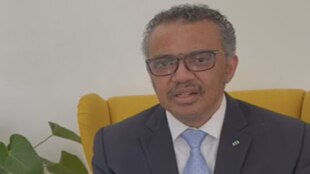- Coronavirus. WHO: "Masks will become the norm"
- WHO: virus slows down in Italy and EU, but accelerates in Africa
- Coronavirus and Africa. WHO: 5 beds for every million people. The economy is also affected
- Covid-19. WHO: "Sun masks are not enough, they do not stop a pandemic"
- WHO: Stopping restrictions can cause the virus to return more severely
Share
by Tiziana Di Giovannandrea 13 April 2020 The Coronavirus is 10 times more deadly than the virus responsible for influenza in March 2009 in Mexico (the so-called swine fever). This was explained by WHO Director-General Tedros Adhanom Ghebreyesus, asking that the easing of measures to contain the spread of Covid-19 be slow and gradual."The data collected in different countries gives us a clearer picture of this virus, its behavior, how to stop it and how to treat it. We know that it spreads quickly and we know that it is deadly, 10 times more than the virus responsible for the epidemic. of influence in 2009, "said Ghebreyesus, during a press conference from the Organization's headquarters in Geneva. The 2009-2010 pandemic caused about 18,000 deaths worldwide and hundreds of thousands of infections, especially on the American continent.
World Health Organization number one added: "We know that in some countries, Coronavirus cases double every 3-4 days. The virus accelerates very quickly but decelerates much more slowly. This means that restrictive measures must be revoked slowly and with control. It cannot happen all at once and only if public health has taken the correct measures, such as a significant ability to trace contacts ".
Vaccine needed to stop transmission
During the briefing in Geneva, the World Health Organization then reiterated that: "The development and distribution of a safe and effective vaccine is necessary to fully stop the transmission" of Covid-19.
Criteria for lifting restrictions
Meanwhile, the WHO will publish its updated strategic advice in the coming hours to help governments make decisions in the fight against Covid-19, including " six criteria for countries considering considering lifting restrictions, " said Tedros Adhanom Ghebreyesus. Among these criteria: "diffusion is under control; the health system's capabilities are in place to detect, test, isolate and treat every case of Covid-19 and trace any contact; epidemic risks are minimized in special contexts such as healthcare facilities and nursing homes; prevention measures are envisaged in the workplace, schools and other places where it is essential for people to go; import risks can be managed; communities are fully educated, committed and authorized to comply with the 'new rule' ".
"Each country - added Ghebreyesus - should implement a complete series of measures to slow down the transmission of Covid-19 and save lives, with the aim of achieving a stable low-level condition or no transmission".

